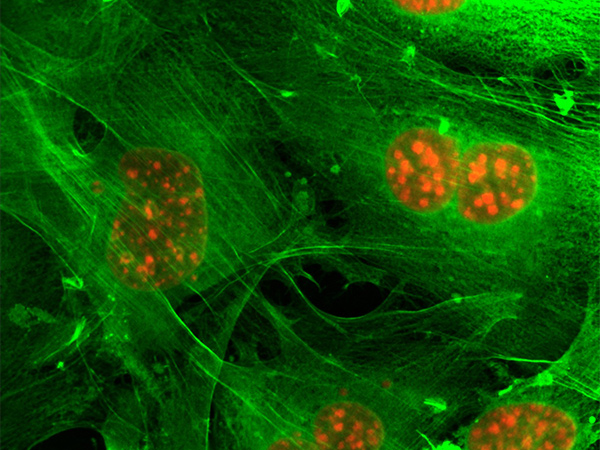Targeting Breast Cancer
The molecularly targeted therapeutic alpelisib was approved for certain patients who have advanced or metastatic breast cancer.

The U.S. Food and Drug Administration (FDA) recently approved a new molecularly targeted therapeutic called alpelisib (Piqray) for use in combination with fulvestrant for treating men and postmenopausal women who have advanced or metastatic, hormone receptor–positive, HER2-negative breast cancer that tests positive for PIK3CA mutations and has progressed during or after endocrine therapy.
Even though we have made great progress in the treatment of breast cancer, 500 men and 41,760 women are expected to die from the disease in the United States in 2019. These figures make breast cancer the fourth-leading cause of cancer-related death for men and women combined in the United States.
About 70 percent of breast cancers diagnosed in the United States are hormone receptor–positive and HER2-negative. The growth of these cancers is fueled by the hormone estrogen.
This knowledge led to the development of several therapeutics, including tamoxifen, letrozole, and fulvestrant, that work in different ways to prevent estrogen fueling breast cancer growth. Treatment with these therapeutics is often called endocrine therapy.
Unfortunately, most hormone receptor–positive and HER2-negative breast cancers that initially respond to endocrine therapy eventually progress because they have become treatment resistant. The FDA approval of alpelisib provides a new treatment option to help address the challenge of resistance to endocrine therapy.
Alpelisib works by blocking the function of a molecule called phosphatidylinositol 3-kinase (PI3K) alpha, which has an important role in driving cell multiplication and survival. Research has shown that mutations in the PIK3CA gene, which provides the code that cells use to make the PI3K-alpha protein, promote the multiplication and survival of about 40 percent of hormone receptor–positive, HER2-negative breast cancers.
The approval of alpelisib was based on results from a randomized, placebo-controlled phase III clinical trial, which were published in the New England Journal of Medicine. The data showed that adding alpelisib to fulvestrant almost doubled the time before disease progression for patients who had advanced or metastatic, hormone receptor–positive, HER2-negative breast cancer that tested positive for PIK3CA mutations and had progressed during or after endocrine therapy. The median time to disease progression among the patients who received alpelisib and fulvestrant was 11 months, compared with 5.7 months among those who received placebo and fulvestrant.
